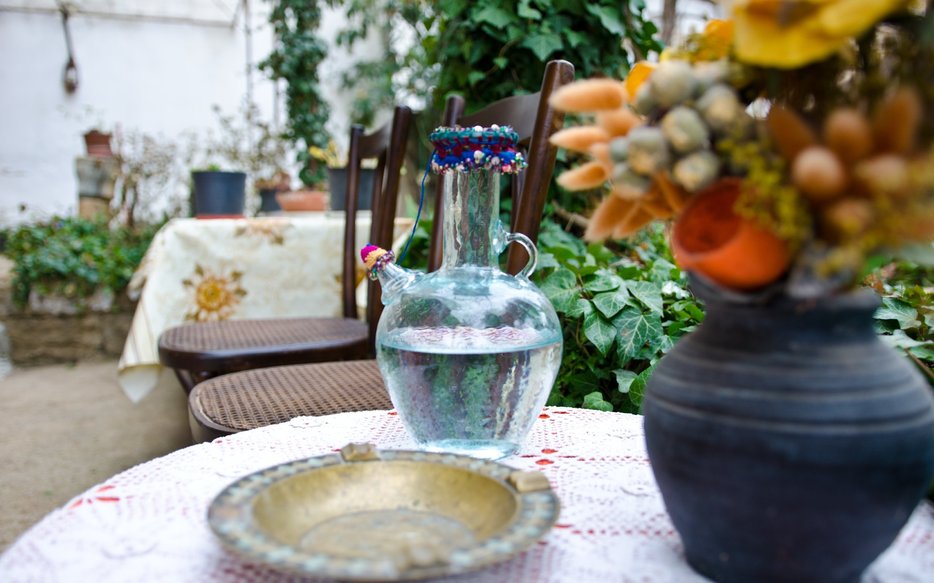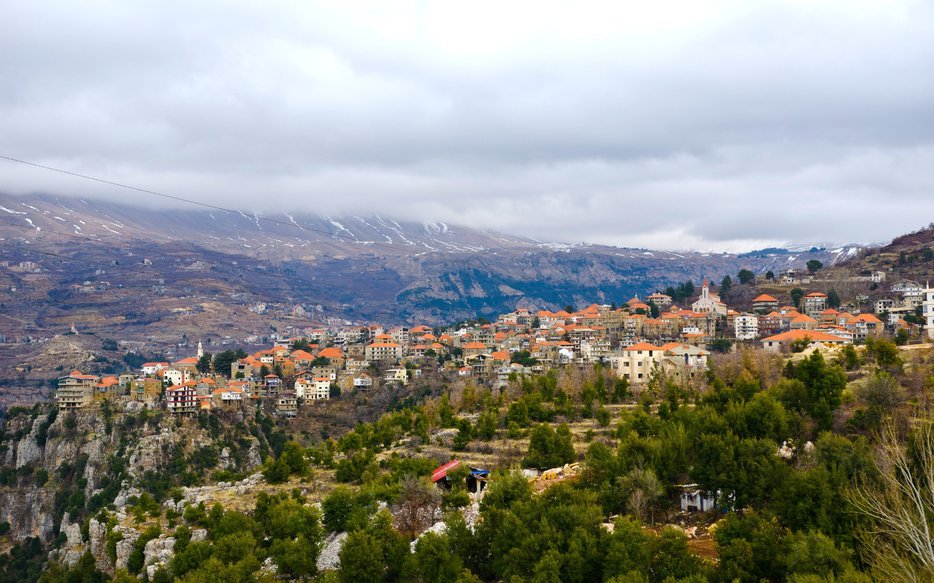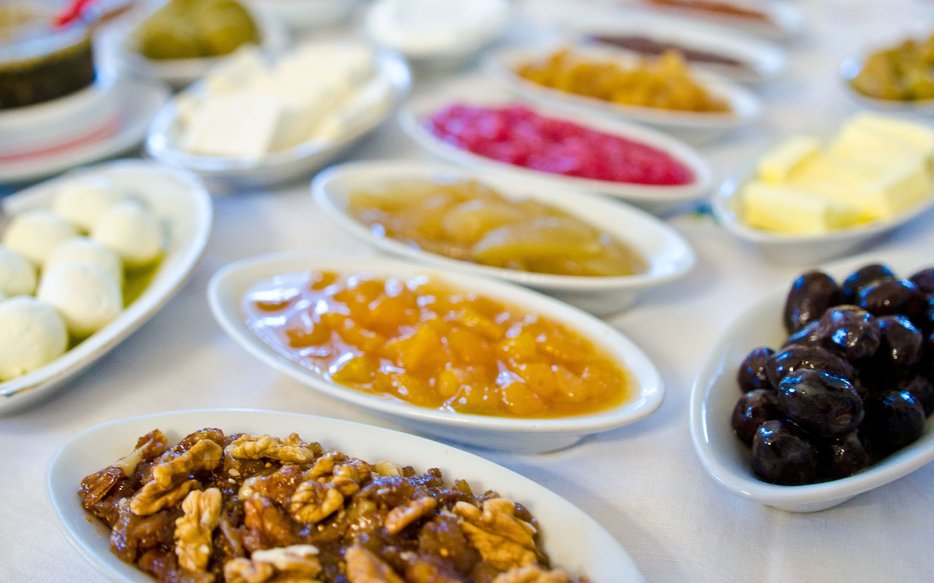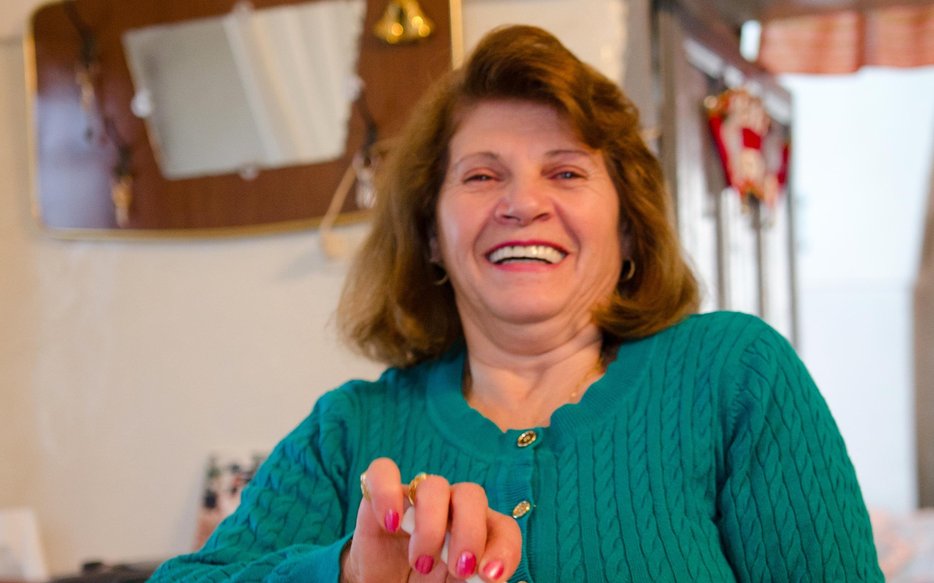Dar Qadisha - Holy Valley, Magic Mountains and Mouneh
The magic started soon after the Bcharreh-bound bus, Gebran Khalil Gebran’s hometown near The Cedars, passed the olive groves of Koura. The road started to wind up and up towards Qadisha Valley, known as the Holy Valley. Some of the earliest Christian settlements have been found in this mighty valley listed as a UNESCO World Heritage Site in 1998. Down below, the Abou Ali River flows through one of Lebanon’s most spectacular sites where a series of monasteries such as Deir Qannoubin and Deir Mar Antonios Qozhaya (the first printing house in the Levant) and fantastic hikes await visitors.
The elderly gentleman who opened the gate to Dar Qadisha in Hasroun was George, the host’s cousin. Walking behind him towards the old stone house, one steers underneath a gorgeous grapevine, ripe grapes dropping down from the lush foliage above. In the back garden Jacqueline was stirring fermenting grapes in large plastic containers.
Jacqueline Touma is one of the remarkable hosts that are part of the l’Hôte Libanais network of guesthouses in Beirut and across Lebanon and which also features one boutique hotel, Dar Alma. Guests do not merely book a room but an experience – they get to interact with their host and somewhat blend into their host’s world. Besides experiencing Lebanese hospitality first hand, they gain unique and authentic insights.
Staying with Jacqueline is a great opportunity to explore Qadisha, given that a path that goes past the old Mar Mikhael Church and the Mar Yaacoub Monastery leads down from Hasroun. Jacqueline, her husband Tony, George and her sister Antoinette know the valley very well and often advise guests on routes to take; George or Dany can be booked for day tours. Not surprisingly, the Lebanon Mountain Trail’s 8th section leads hikers from Bcharreh to Hasroun.
Second only to Douma, picturesque Hasroun (12,000 inhabitants), known as the Rose of the Mountain, features many typical red-tiled, traditional Lebanese houses and the old (sadly closed) Cinema Dunia on the Main Road. Hasroun is the hometown of the first Lebanese immigrant to Mexico, Yaacoub Sawma. There still is a prominent community of businessmen, deputies and ministers, in that country, that trace their roots back to Hasroun.
A series of Maronite scientists, priests, prelates or patriarchs joined the services of the Holy See, distinguishing themselves also as teachers, notably Youssef Semaan El Semaani who left for Rome in the 18th century and for whom a statue has been erected.
Jacqueline likes to travel as much as she enjoys hosting travellers or those in need of a serene weekend getaway. “I like people and I like travelling and welcoming people from all over the world,” the warm and good-natured native of Hasroun put forward. She decorated the two rooms upstairs, which are cosy and have a distinct retro look. A fully equipped kitchen allows for self-catering. There are shops as well as a bistro and some eateries on the Main Road – quite a few run by Jacqueline’s relatives – she sells her home-made produce and mouneh in her shop: Les produits de notre village (The produce of our village).
Food and foraging is indeed the focus of much of Jacqueline’s time… Visiting in autumn meant that activities and conversations centred around the local flora and fauna, and the age-old tradition of making preserves to get through winter, known as mouneh. Jacqueline’s naamlieh (wooden cabinet for preserves) and storerooms were indeed filled to the brim with pomegranate molasses, a variety of jams, which she serves for breakfast, including apricot, quince and apple jams, as well as fig and Reine Claude jams, amongst others. She also makes her own tomato sauces, pickled vegetables and zaatar mix and a range of infusions.
Her jams and slightly spicy ketchup have made a lasting impact on the guests she’s welcomed since opening her house in 2008. Her guestbook speaks volumes – in mostly Arabic, French and English – and also reveals that “repeat offenders” did indeed come back for more of her hospitality and delicacies.
Nature and the seasons govern the rhythm of life in the 1400-1650m high mountain town as well as Jacqueline’s activities. Much of what she prepares and serves is the result of a whole year’s work – she plants what she eats. From her tabbouleh to her kibbeh or apples, everything tastes fresh and incredibly good and is made/grown with love. The grapes Jacqueline was quashing just before afternoon tea would be turned into homemade Arak and Cognac she would soon be distilling.
Sitting on the canopy swing with George, smoking one of his Winston cigarettes, sipping cinnamon-flavoured tea, bantering with the two of them, was a treat. Even more so, was waking up to the sound of a gentle autumn rain early the next morning and looking up into the blue grey skies, while snug in a warm bed.
Walking around the village half an hour later, plants were glistening in the golden morning sun. The mountains donned a multitude of shades of browns and greens, kids made their way to school and the air was crisp and fresh like the water coming out of the numerous fountains around town.
After a hearty Lebanese breakfast, consisting of Jacqueline’s now world-famous jams, as well as olives, labneh, zaatar and eggs, it was time to bid Jacqueline and Hasroun farewell. With a backpack full of mouneh…
Sport
Hiking
Sports
Stay
Bed and Breakfast
Short getaways
Weekend breaks
Food
Lebanese Delicacies





